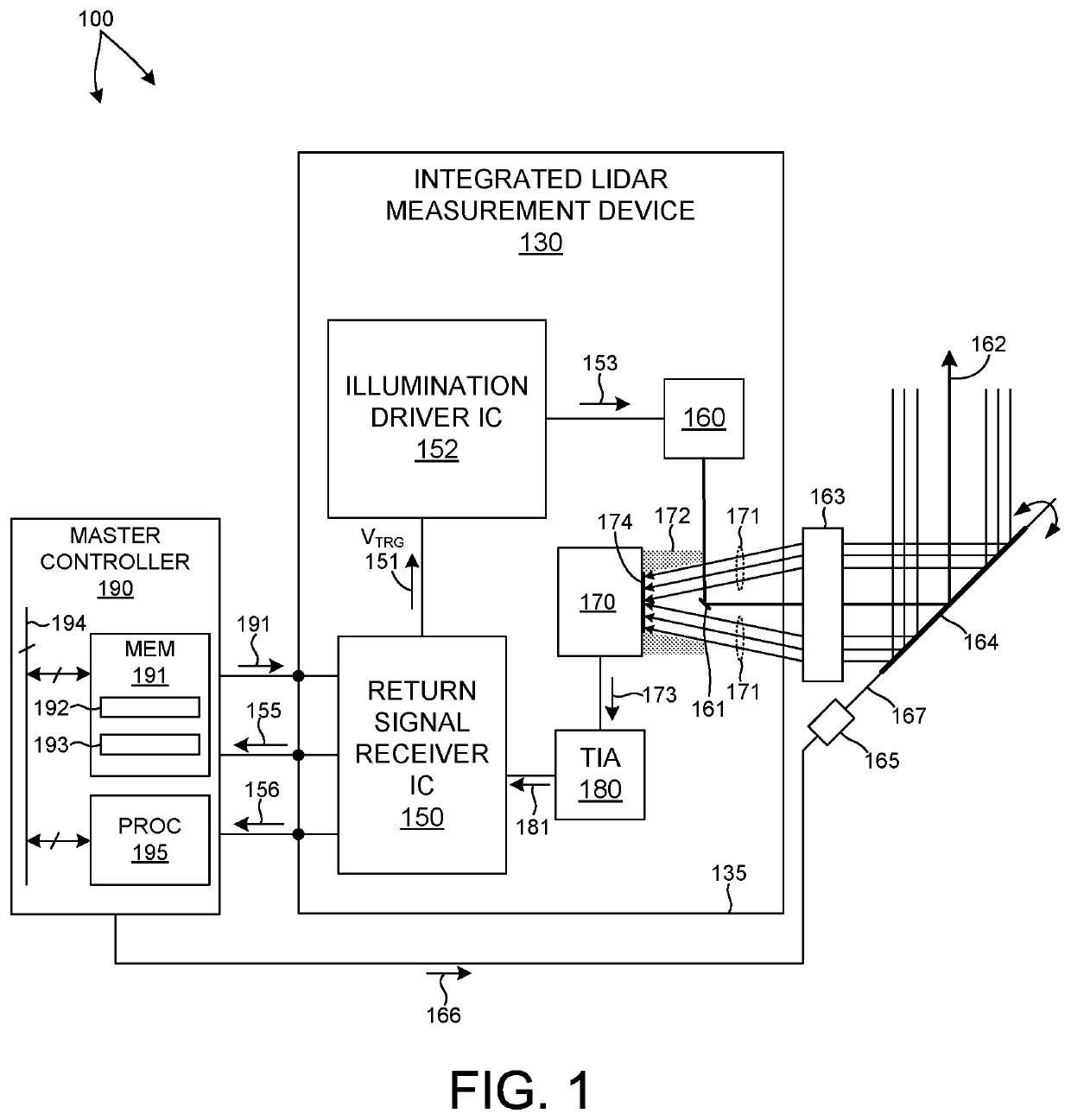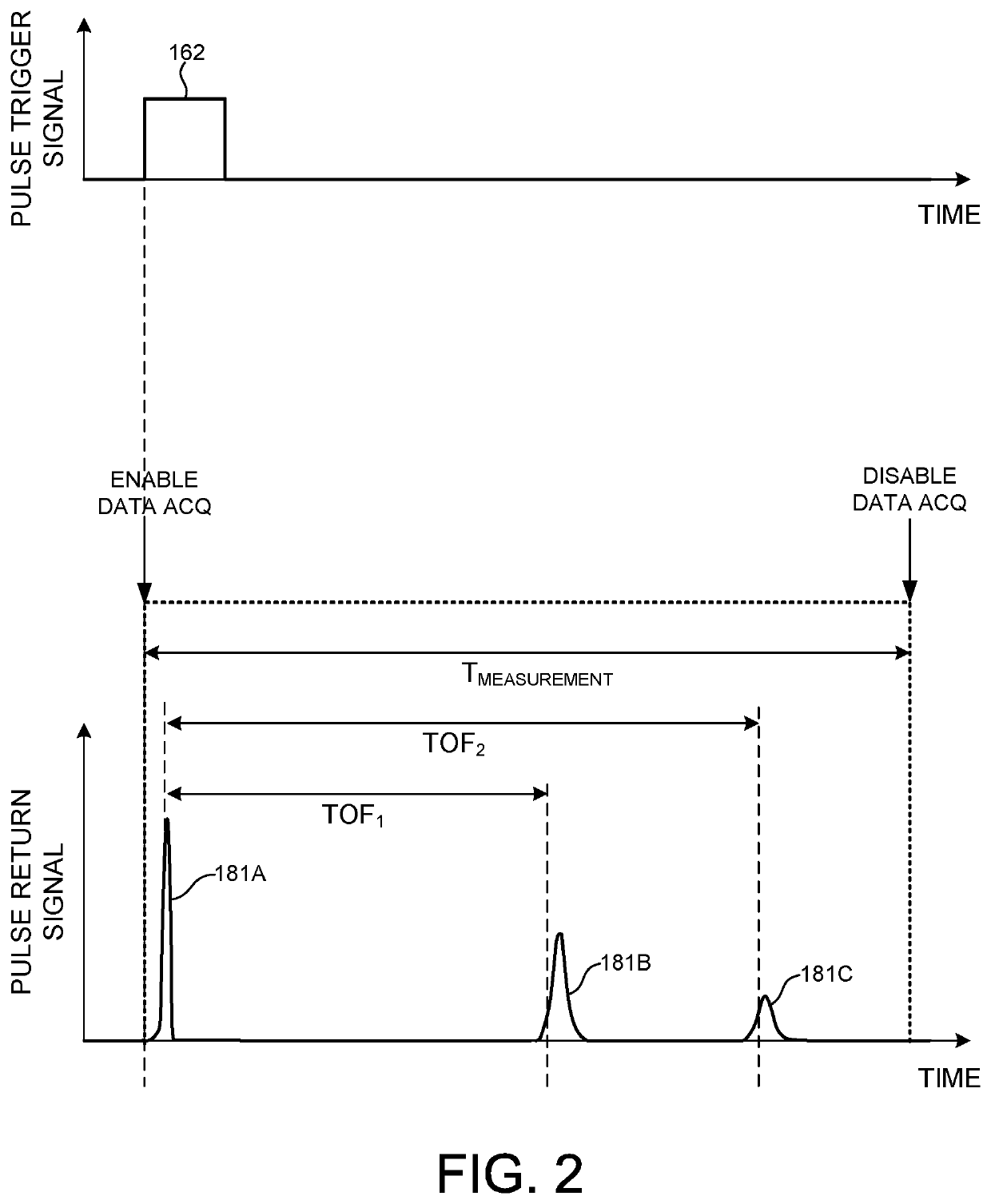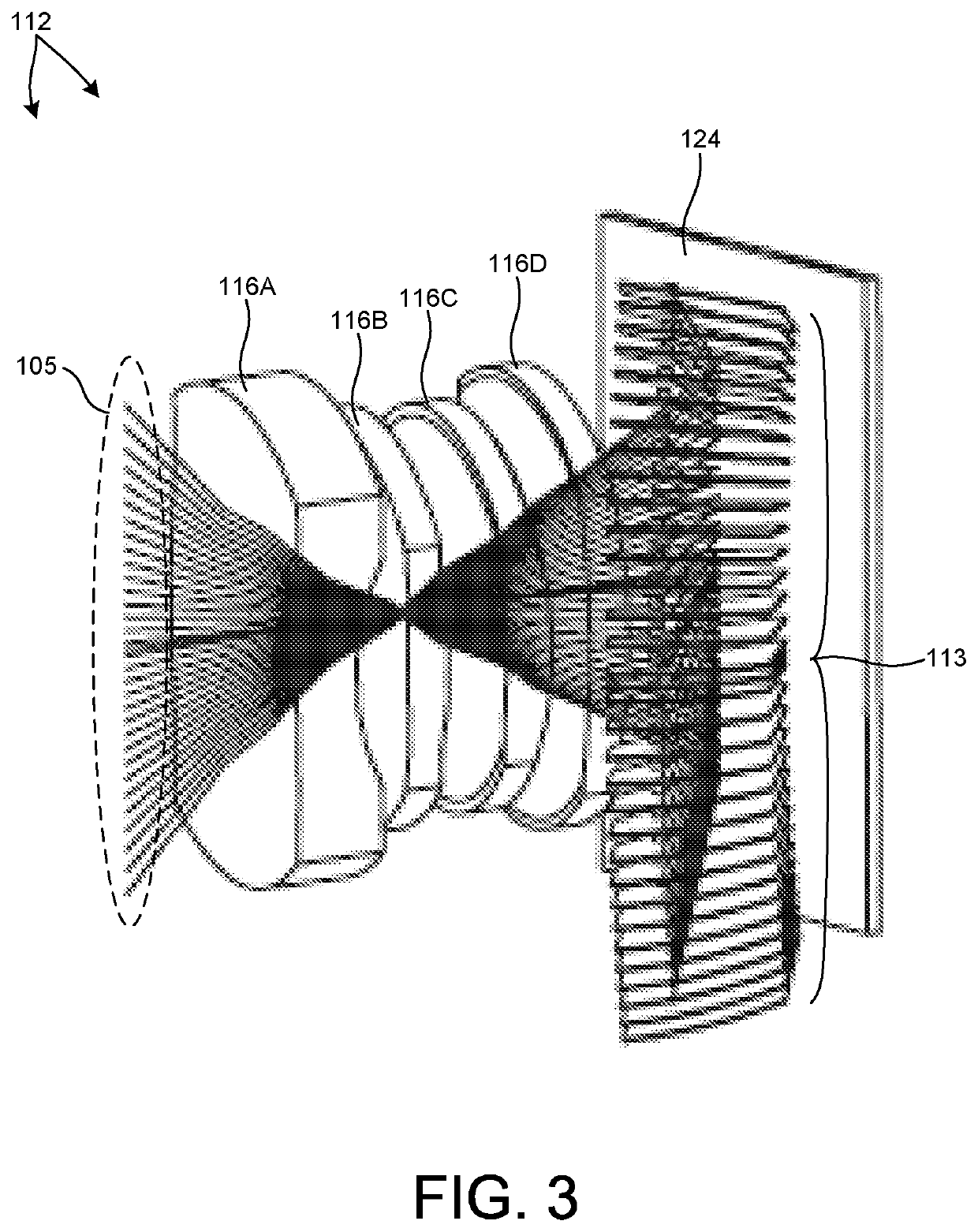Multiple Pixel Scanning LIDAR
a three-dimensional, point cloud technology, applied in the direction of distance measurement, instruments, using reradiation, etc., can solve the problems of inherently limited number of pixels such devices can generate per unit time, and come at the cost of reducing the density of point cloud, so as to achieve the effect of expanding the field of view and increasing the sampling density
- Summary
- Abstract
- Description
- Claims
- Application Information
AI Technical Summary
Benefits of technology
Problems solved by technology
Method used
Image
Examples
embodiment 400
[0056]In the embodiment 400 depicted in FIG. 7, four light sources are arranged in a 2×2 array. However, in general, any number of light sources may be arranged in any suitable manner. In one example, the 2×2 array is tilted with respect to the scanning mirror such that the measurement beams are interlaced in the overlap region.
[0057]In another aspect, the light source and detector of each LIDAR measurement channel is moved in two dimensions relative to the beam shaping optics employed to collimate light emitted from the light source. The 2-D motion is aligned with the optical plane of the beam shaping optic and effectively expands the field of view and increases the sampling density within the field of view of the 3-D LIDAR system.
embodiment 210
[0058]FIG. 8 depicts an embodiment 210 of a 3-D LIDAR system employing a 2-D array of light sources 211, including light sources 212A-C. Light sources 212A-C are each associated with a different LIDAR measurement channel. Light emitted from each light source 212A-C is divergent. These divergent beams pass through beam shaping optics 213 where they are approximately collimated. Collimated beams 214A-C are each associated with light sources 212A-C, respectively. The collimated beams 214A-C pass on the 3-D environment to be measured. The term “approximately” collimated is employed to note that in practice, perfect collimation of light beams is rarely achieved. Thus, typically, the resulting beams remain slightly divergent or convergent after passing through beam shaping optics 213.
[0059]In the depicted embodiment, the 2-D array of light sources 211 is moved in one direction (e.g., the Xs direction) by actuator 216, and the beam shaping optics 213 are moved in an orthogonal direction (e...
PUM
 Login to View More
Login to View More Abstract
Description
Claims
Application Information
 Login to View More
Login to View More - R&D
- Intellectual Property
- Life Sciences
- Materials
- Tech Scout
- Unparalleled Data Quality
- Higher Quality Content
- 60% Fewer Hallucinations
Browse by: Latest US Patents, China's latest patents, Technical Efficacy Thesaurus, Application Domain, Technology Topic, Popular Technical Reports.
© 2025 PatSnap. All rights reserved.Legal|Privacy policy|Modern Slavery Act Transparency Statement|Sitemap|About US| Contact US: help@patsnap.com



